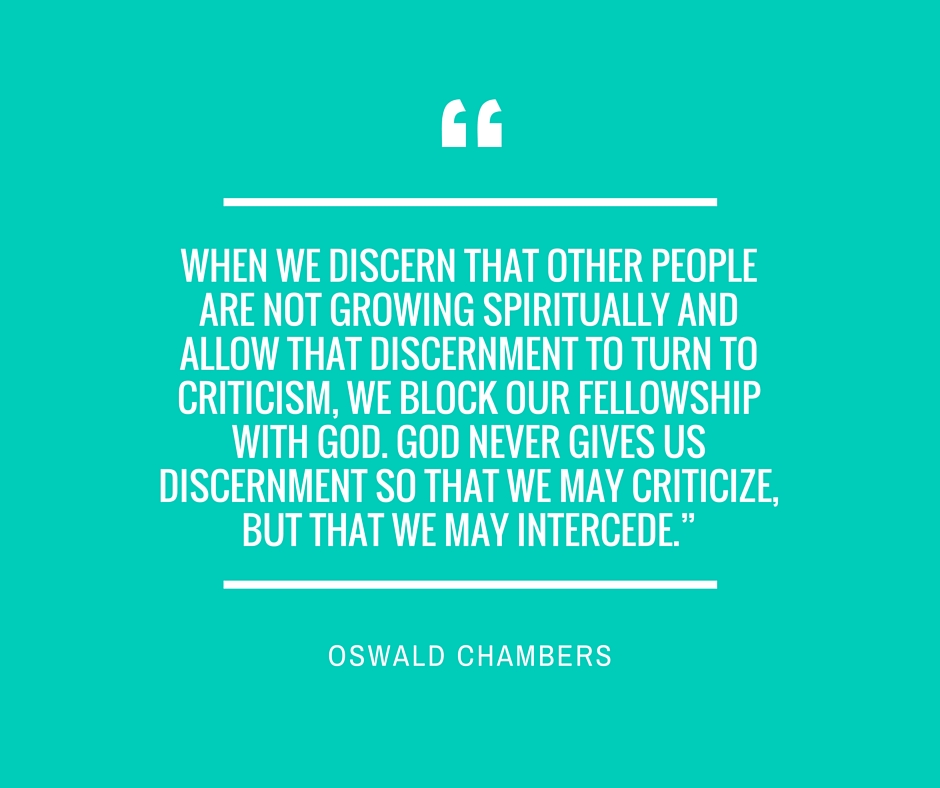 Key Bible Verses: Matthew 18:15-17, Galatians 6:1, Romans 16:17, Romans 14:4
Key Bible Verses: Matthew 18:15-17, Galatians 6:1, Romans 16:17, Romans 14:4
One of the defining marks of a true Christian is a disdain and discernment for sin. When the Holy Spirit enters our hearts and as we grow in our walk with Jesus, we become more discerning to the sins both in us and in others. This is a great gift that benefits a heart seeking after God, but with each gift we receive comes a temptation to use it wrongly. So how do we use our discernment according to the Bible?
How to Use Discernment the Right Way
Discernment over sin should, of course, primarily be used to aid the believer in confessing and repenting of their own rebellion. For how are we to help others see clearly if we ourselves still have planks of sin in our own eyes (Matthew 7:1-5).
Additionally, a discernment over sin should help us confront those who have sinned against us with the hope of restoration to the relationship (Matthew 18:15-17). If a person holds a position of authority over others (parents over children, bosses over workers, pastors over members, teachers over students, guardians over the guarded, est.), a discernment of sin should be used to enforce healthy discipline for the benefit of those in their charge. Discernment helps us intercede in prayer better for people, it helps us avoid negative and worldly relationships that we should not be engaging in, and discernment helps us in countless other ways.
How to Use Discernment the Wrong Way
Discernment, however, turns into sinful judgment when we move outside of our biblical boundaries. Every one of us have people in our lives that we can help steer and correct as the Bible instructs Christians to do for one another. But not everyone in your life is a person that should be steered and corrected by you individually. A few examples of using discernment wrong include:
- You should not correct people’s inner motivations, as only God can truly know the heart (1 Corinthians 4:4-5). You should only correct external, observable, and repeated sins.
- You should not correct unbelievers as you would a believer because unbelievers have not committed to obeying God’s laws as believers have (Matthew 18:17).
- You should not correct a person who you have corrected multiple times and who shows no desire to listen to you (Titus 3:10-11, Matthew 7:6).
- You should not correct a person who sins but is seeking to repent, unlike someone who is “caught in sin” and is no longer seeking to escape it (Galatians 6:1), which in that case you should use your discernment to correct them.
- If you need to rebuke someone older than you, you must be sure to do this gently, honorably, and not harshly (1 Timothy 5:1).
- You should not rebuke those Christian leaders who are in authority over you (Titus 2:9), unless they sin directly against you (Matthew 18:15). When a Christian is sinning, not repenting, in authority over you, but their sin is not directly against you, then the appropriate actions is not to rebuke them since you do not have the authority to do so. Rather you should go to their authority and give the person or people (like a board of elders) the opportunity to do so.
To clarify the last point, this situation is much like a police officer who is breaking the law. If that police officer is unlawfully attacking you or someone near you, you have the lawful right to act and defend yourself. However, if you or the people around you are not being attacked directly, but you see this police officer breaking the law, the right response is not to confront the police officer who is breaking the law but to contact those in authority over this police officer.
When you do not have the authority to correct someone who is in error, you should call the people who do. This is why no one person should have the ultimate power in the church. There should always be a group of elders who have the right to correct one another. There should never be just one head pastor with all the authority with no one to correct him.
As painful as it is to see the obvious sins of others, often times it is sin itself to correct certain people in our lives. For example: Children should not rebuke their parents. They can express their displeasure or feelings of being wronged by their parents, but everyone knows that it is downright wrong for a child to in-act a consequence or disciplinary action for their parents. Workers should not enforce penalties on their bosses, a lawyer should not overrule the judge, citizens should not fine police officers, soldiers should not give orders to their commanding officers, and all the other millions of obvious examples prove this obvious point: we will need discernment on how to best use our discernment.
How to Use Discernment: Don’t Be Proud, Be Prayerful
May God give us the wisdom to use the gift of discernment properly. May he show us when to correct, when to confront the proper authorities to correct those in authority over us, and may he give us discernment to know when to simply pray while keeping our mouths closed as we see the errors of those outside of our sphere of influence.
It’s never easy to watch people sin, but sometimes it is sin to correct them rather than pray for them. We must not be rash. We must rather learn how to use our discernment and apply God’s truth rightly.
